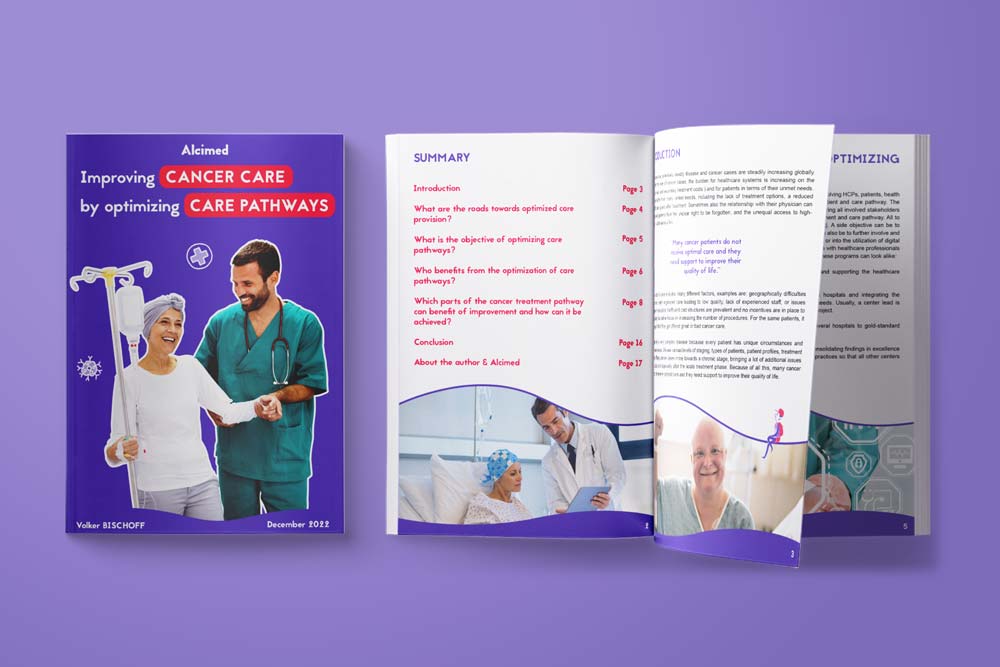3 major context evolutions of the medical visit
HCPs’ habits and practices are changing. Yet, the function of medical sales representatives has not evolved to adapt to its target. Let’s discuss the reasons for this growing disinterest in meetings with medical representatives.
Information access facilitated by the Internet
Now, HCPs can easily look for different sources of information online. Therefore, the medical sales representative no longer has the “exclusive” right to clinical information, which reduces the perceived value of the promotional visit. Indeed, 70% of HCPs surveyed feel that medical sales representatives do not fully understand their needs and expectations, while 62% say they are overwhelmed by the product-related promotional content they receive from pharmaceutical companies.
An escalating mistrust of healthcare professionals regarding medical visits
HCPs are increasingly limiting or refusing medical visits. This trend is even more important among young doctors, who are more suspicious about pharmaceutical companies. HCPs are also dedicating less and less time to medical visits, while hospitals are limiting these visits and setting their modalities (e.g., visits in group). Indeed, in 2022, 43% of HCPs restricted medical sales representatives’ access to healthcare buildings. Among them, 44% confirmed that they would maintain these restrictions in the near future and 28% would do permanently.
Aside from a better access to online information, healthcare professionals’ practices have changed
The use of digital technologies by doctors is becoming more and more established. Indeed, 87% of French HCPs have used at least one digital tool in practice since the COVID-19 crisis, compared to 79% before the crisis, which has led to a loss of physical contact with medical sales representatives. In 2021, 68% of HCPs indicated that webinars or webcasts were their preferred channel to receive information, compared to 58% in 2019. However, the same study indicates that 65% of HCPs still preferred to receive information in-person, indicating that this channel will continue, and will likely be integrated into a hybrid engagement model.
These major changes require an evolution of the role of the medical sales representative. This involves the development of new skills, performance assessment systems and a change of position of the medical sales representatives inside pharmaceutical organisations.
New expected skills from medical sales representatives
In order to adapt to the new hybrid modalities and to the restrictions to reach HCPs, the medical sales representative will have to master new digital tools and embrace a multi-channel engagement strategy, personalized for each individual, to maintain a good customer relationship.
The medical sales representative as a cornerstone of the Customer Engagement model
Different models of engagement exist, for example the “medical sales representative orchestrator”. In this model, the medical sales representative is responsible for customer knowledge and is proactive in their engagement. He organizes all interactions with HCPs for whom he is responsible for, and uses the channels and content at his disposal to shape a personalized and consistent customer pathway adapted to their needs.
Therefore, more than before, the medical sales representative will play a central role as responsible for the customer relationship within the pharmaceutical company’s organization. Indeed, the medical sales representative is the main point of contact to support customers in order to strengthen the relationship between the pharmaceutical company and the prescribers.
Learn more about the issues related to the optimization of patient pathway >
From product-related promotion to valorization of the care pathway
On the one hand, in order to restore HCPs’ confidence in the medical sales representative and reaffirm their added value, medical sales representative will have to be able to better frame the promotion of drugs and talk about proper use of medication with a broader vision of the patient pathway and the full therapeutic management ecosystem.
To do so, they are expected to have a thorough knowledge of pathologies and drugs’ mechanisms of action, as well as a deep understanding of the healthcare system. This implies that they need to be trained more, so that they can have a high level of discussion with doctors and thus contribute to a better engagement of HCPs.
Beyond these changes, the role of the medical sales representative is also evolving to support HCPs in the management of projects. For example, projects aiming at improving patient pathways or even organisational or operational projects.
What role can laboratories play in the evolution of the function of medical sales representative?
The changes regarding expectations, skills and roles of medical sales representative raise the question of changing financial incentives and performance assessment systems, which are currently quantitative, often based on the number of boxes sold, and which do not always consider the other skills expected from medical sales representatives.
On the other hand, the new expected skills question the medical sales representatives’ profiles to be recruited or the training of those already employed, who will also have to support this change. In France, this evolution can be achieved through three major levers:
- Training in project management, from the proposal to implementation and follow-up, would also enable medical sales representatives to be considered as partners, while contributing to the improvement of the care pathway and the quality of life of patients.
- Pharmaceutical companies are transforming professional contracts of medical sales representatives into contracts of “Attaché à la Promotion du Médicament” (APM) which extend their scope of activities, aside from the promotional medical visit, with activities such as remote visits, carrying out “unbranded” visits dealing with topics related to the use of the product or the implementation of projects aiming at improving the patient’s care pathway.
- A change in governance by setting consistent objectives with the new expectations from medical sales representatives, and fostering the development of new skills such as the implementation of new projects. The role of managers becomes even more critical to support their teams and to build skills development plans that are aligned with the HCPs’ needs.
- The implementation of an effective process to report needs from the field and translating these needs into concrete solutions to meet doctors’ expectations. In this regard, they will have to train their teams to acquire new skills, but pharmaceutical companies shall first define clear customer engagement strategies. These strategies will be the starting point for the medical sales representatives to think about the customer journey adapted to their target. To do so, a methodology is suggested by Alcimed and described in the position paper “Customer Engagement, The Hitchhiker’s Guide to Customer Engagement in the Digital Post Covid-19 Era”. One of the prerequisite described is a deep understanding of customer needs based on internal reports. This process should set at the core of the companies’ tactics the function of medical sales representatives, who are essential to collect information from the field.
Thus, regarding the changes in the medical visit ecosystem and HCPs’ expectations, a deep transformation of pharmaceutical companies’ internal processes is expected. Beyond the strategies aiming at rebuilding teams and creating a new function, existing function can also be transformed and adapted. Such transformation is time-consuming and difficult to implement as it requires a complete overhaul of governance schemes, changes in incentives, objectives and skills of the field forces and the management teams. Alcimed can support you in this transformation and in the implementation of the new vision of the role of medical sales representatives.
About the author,
Salma, Consultant in Alcimed’s Health team in France



